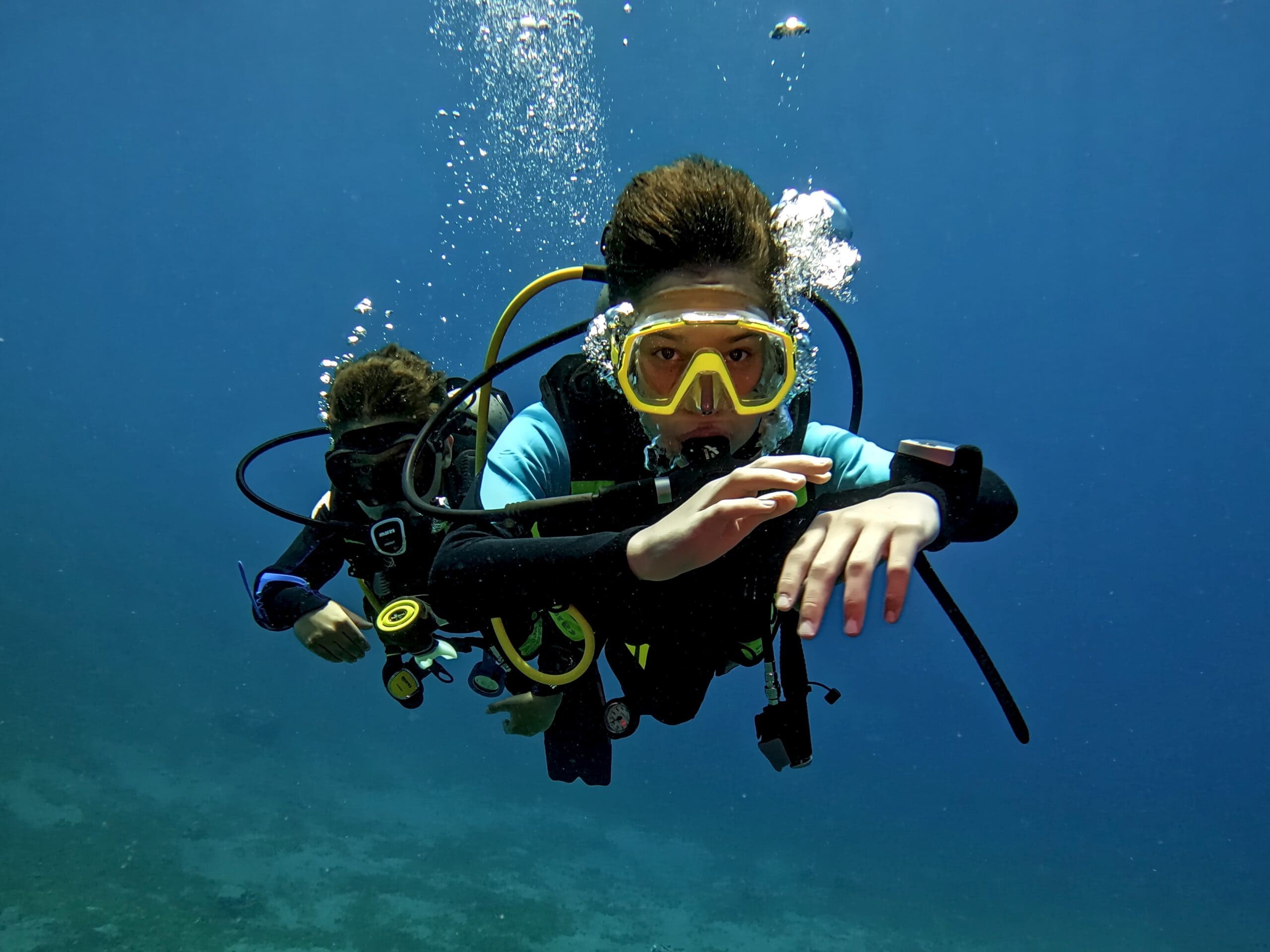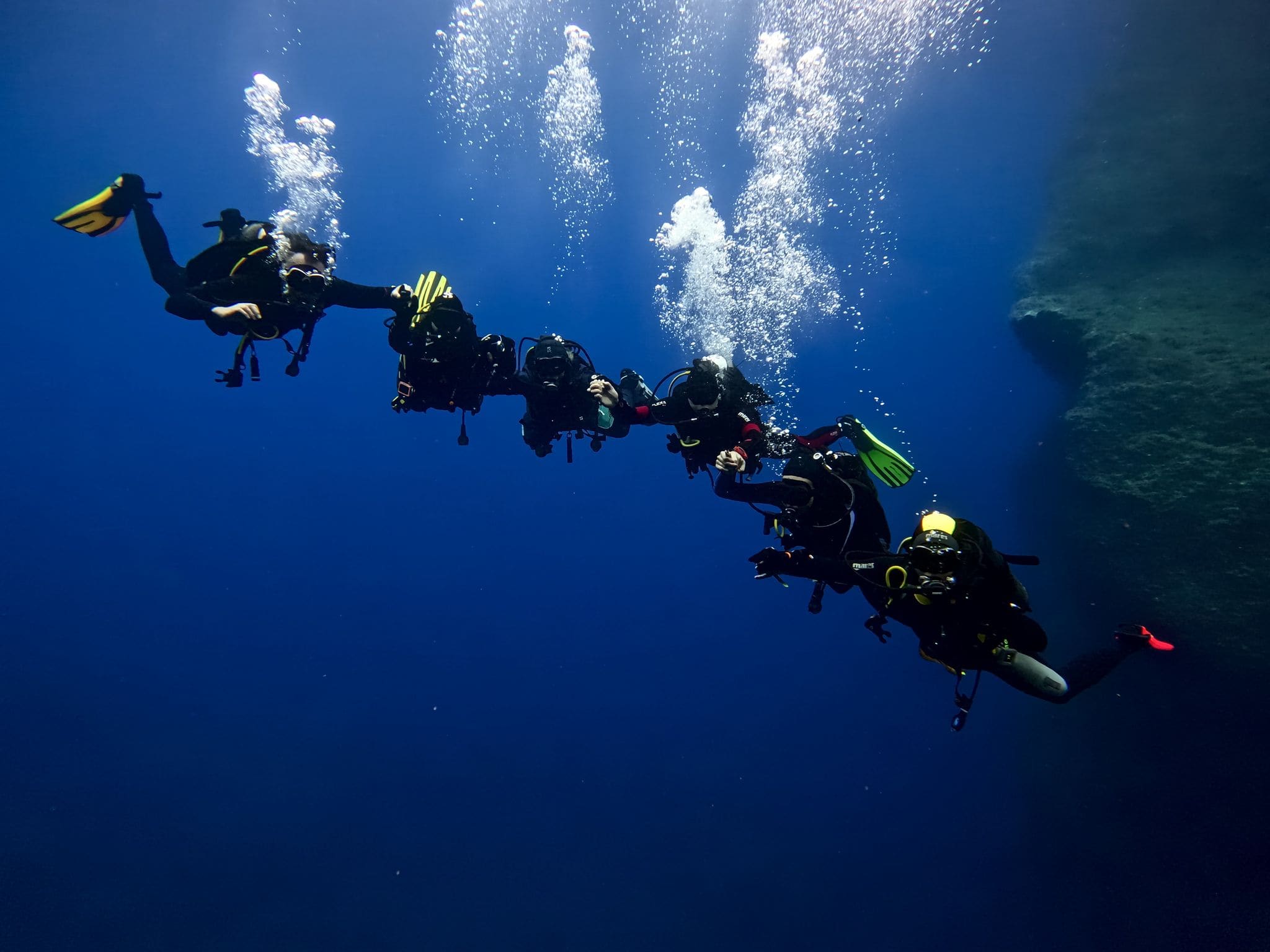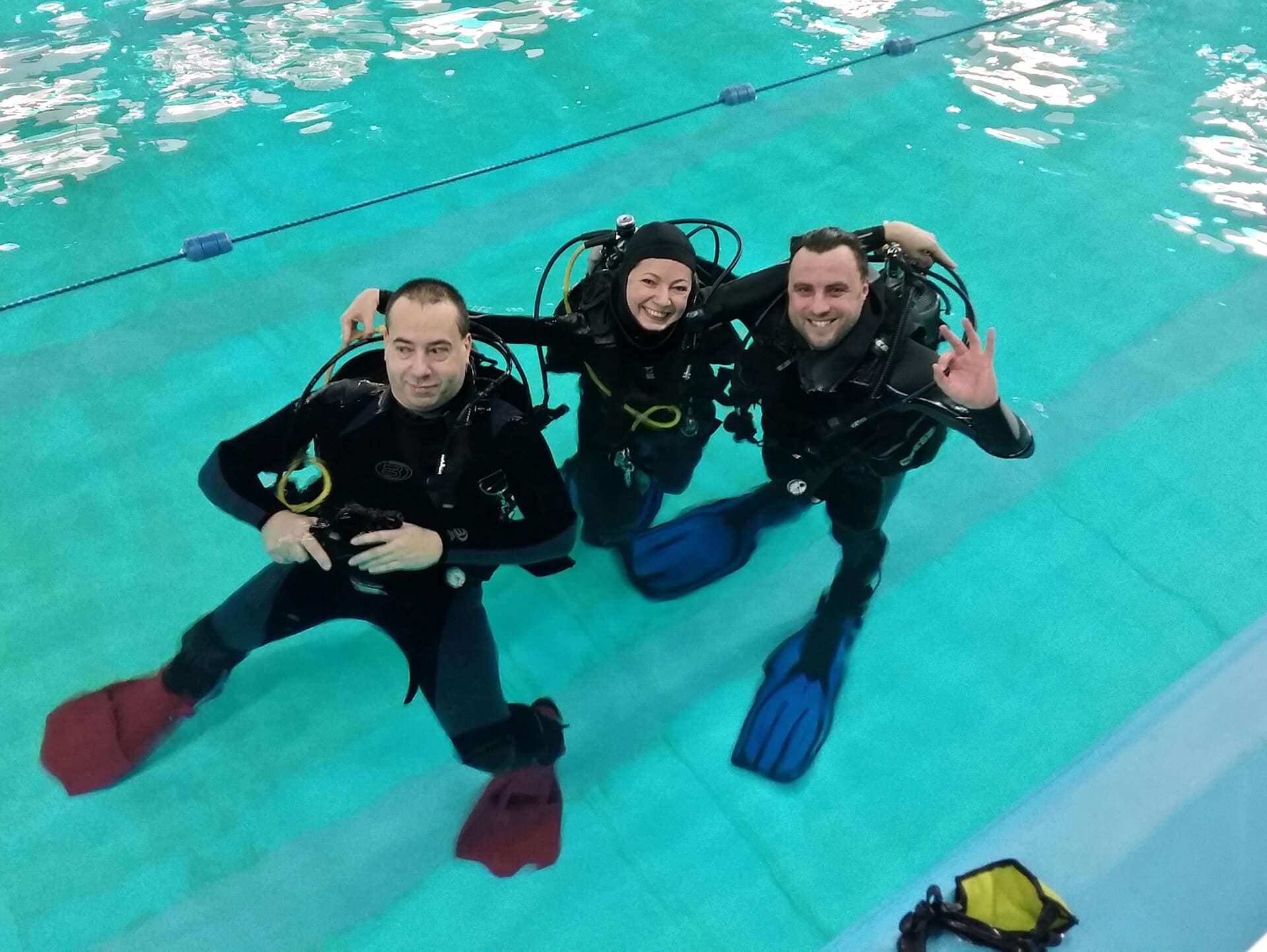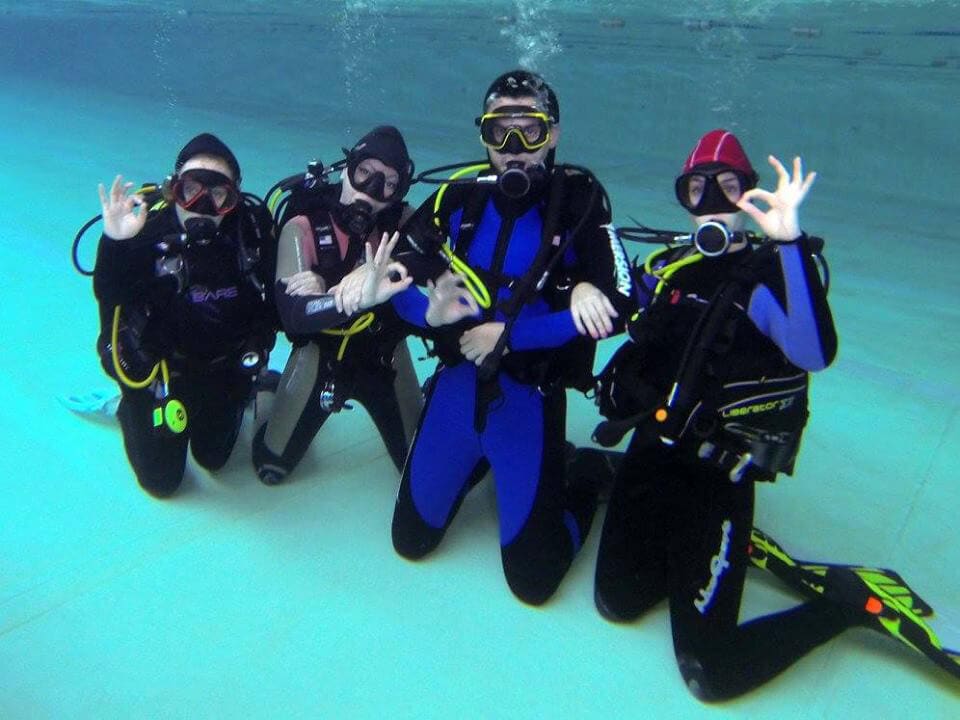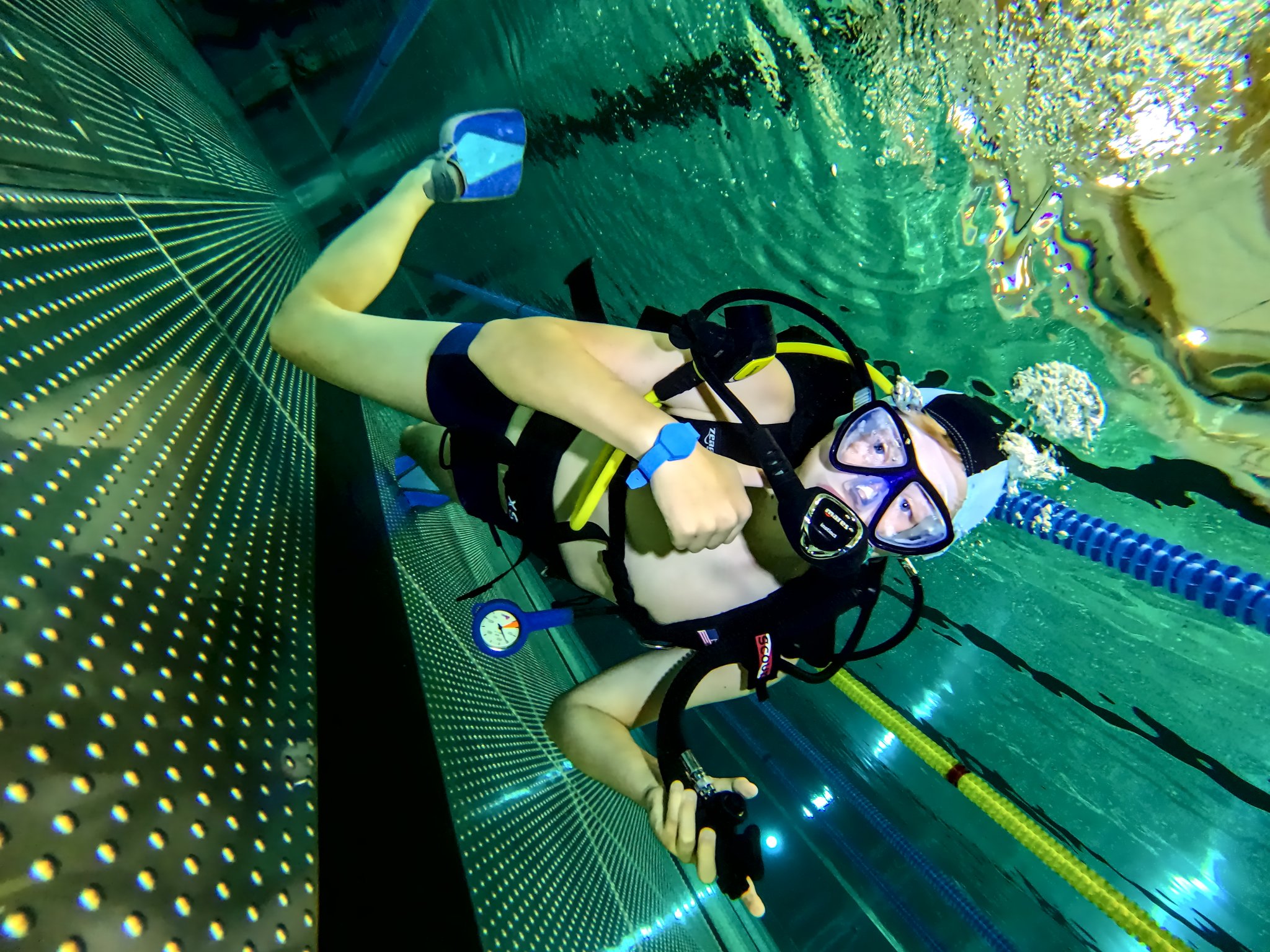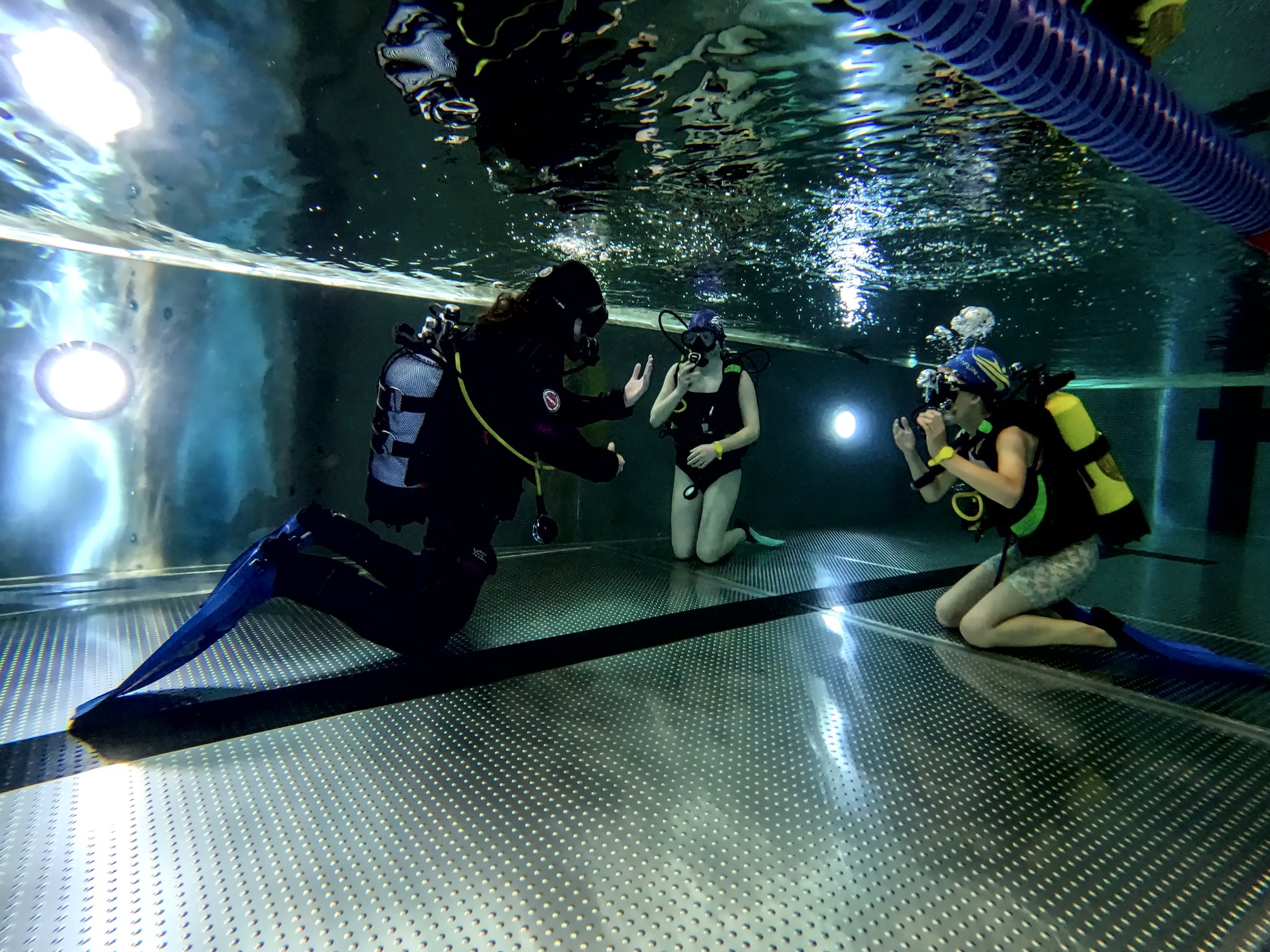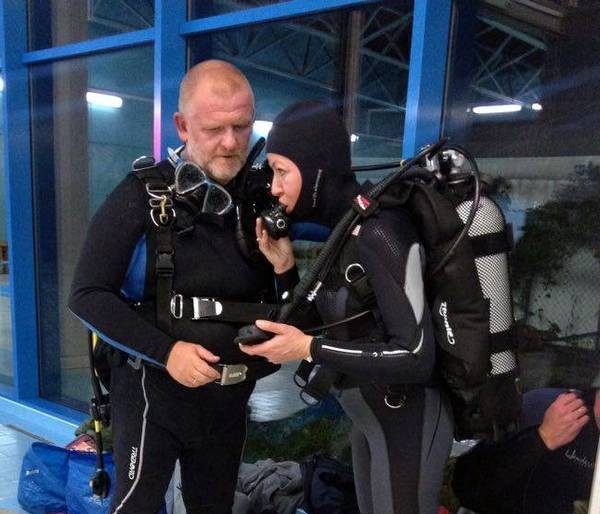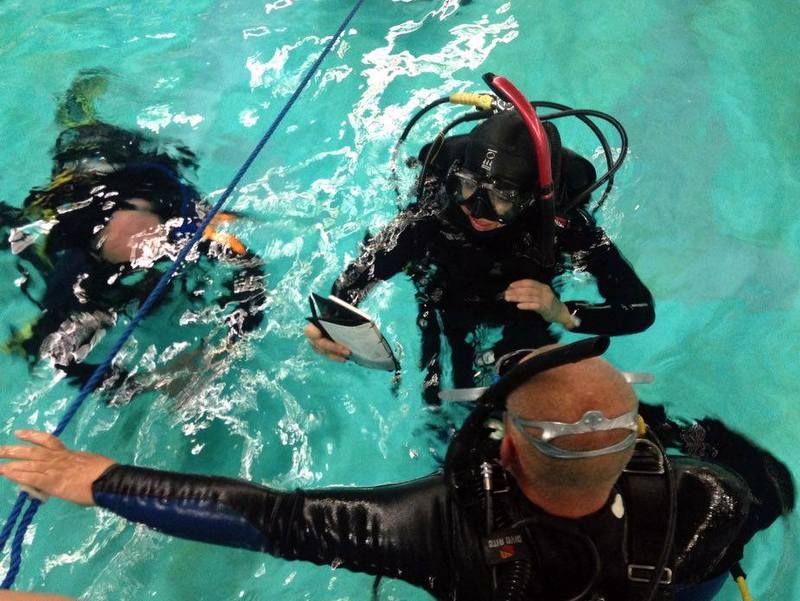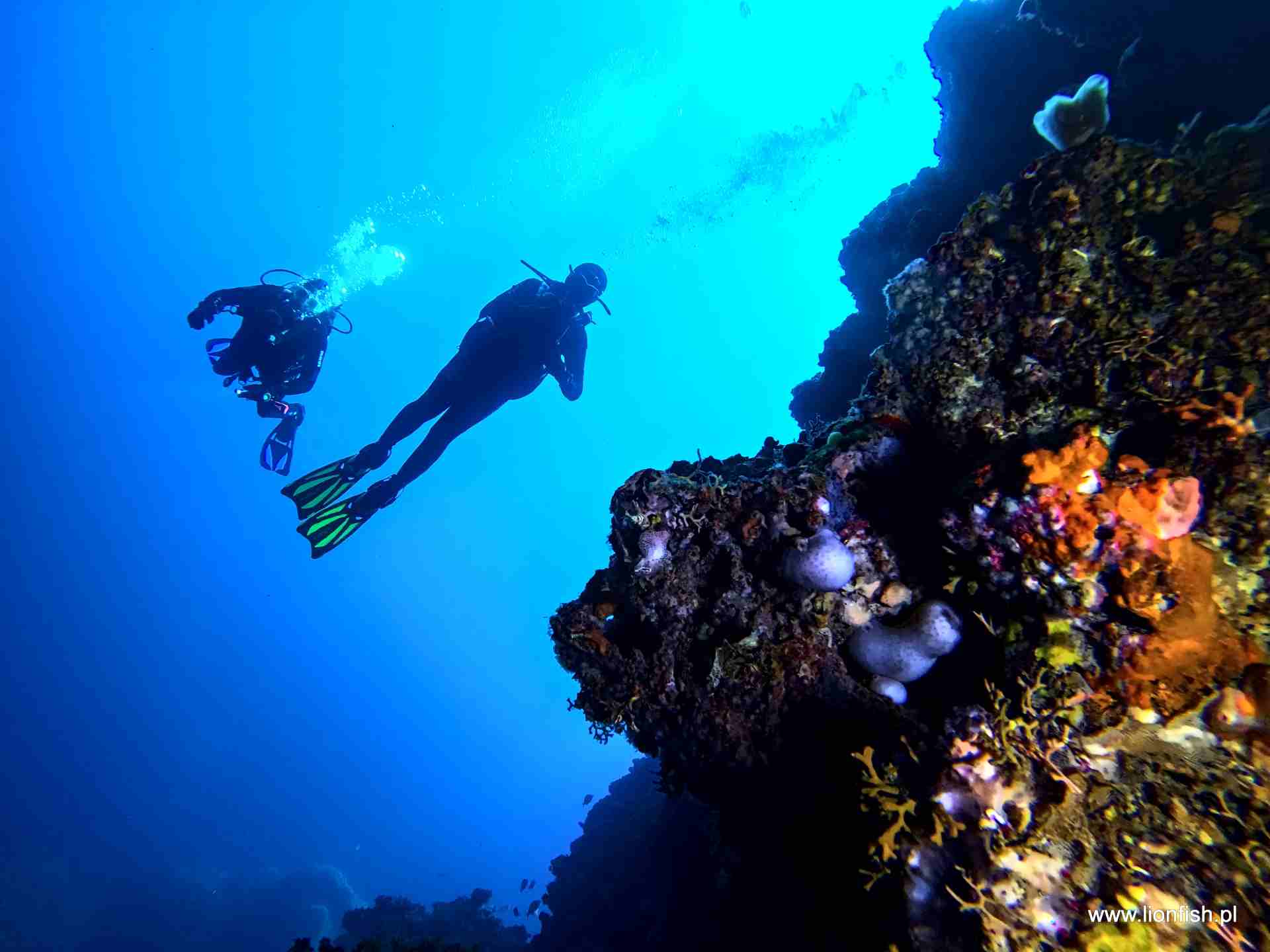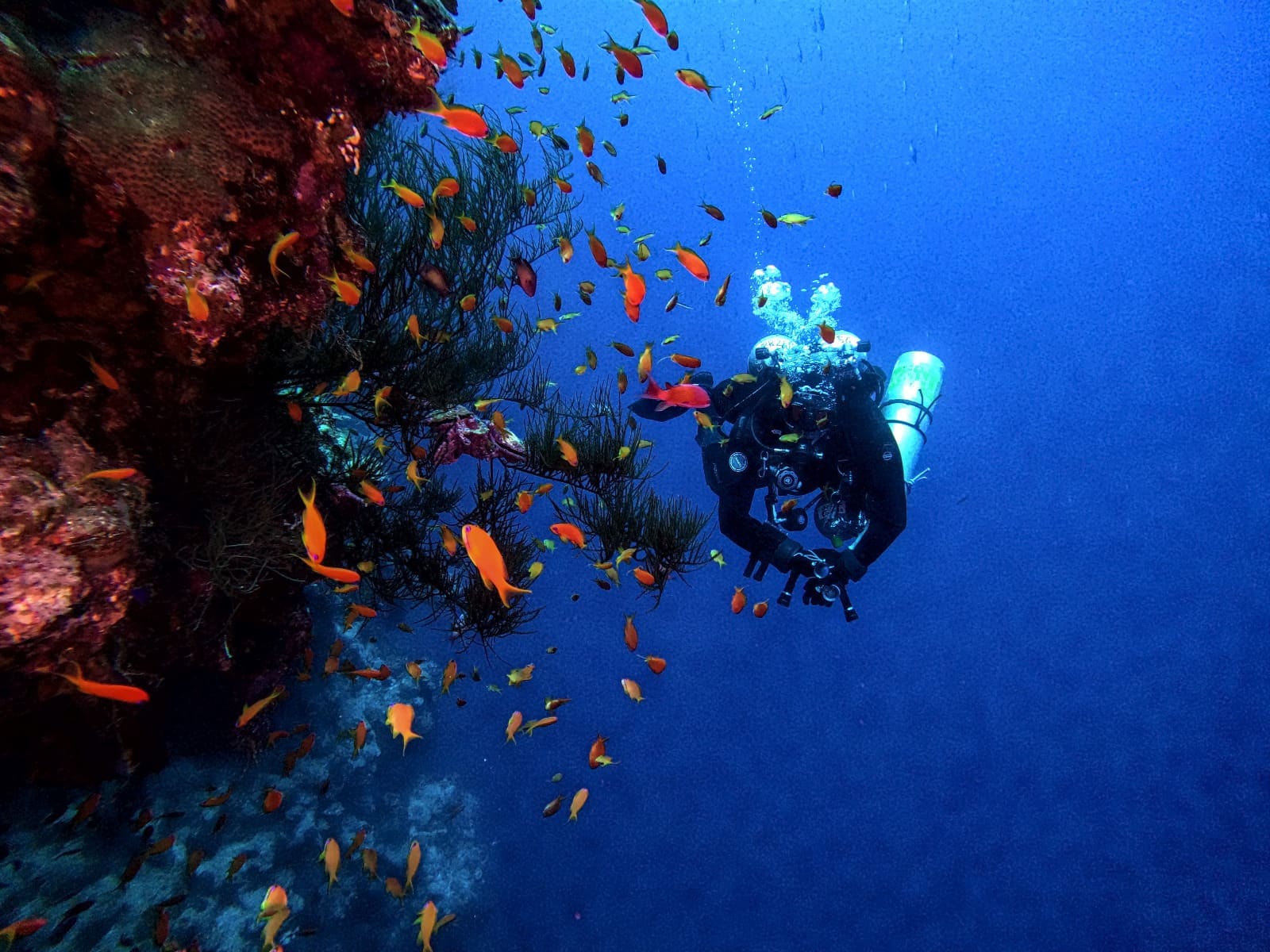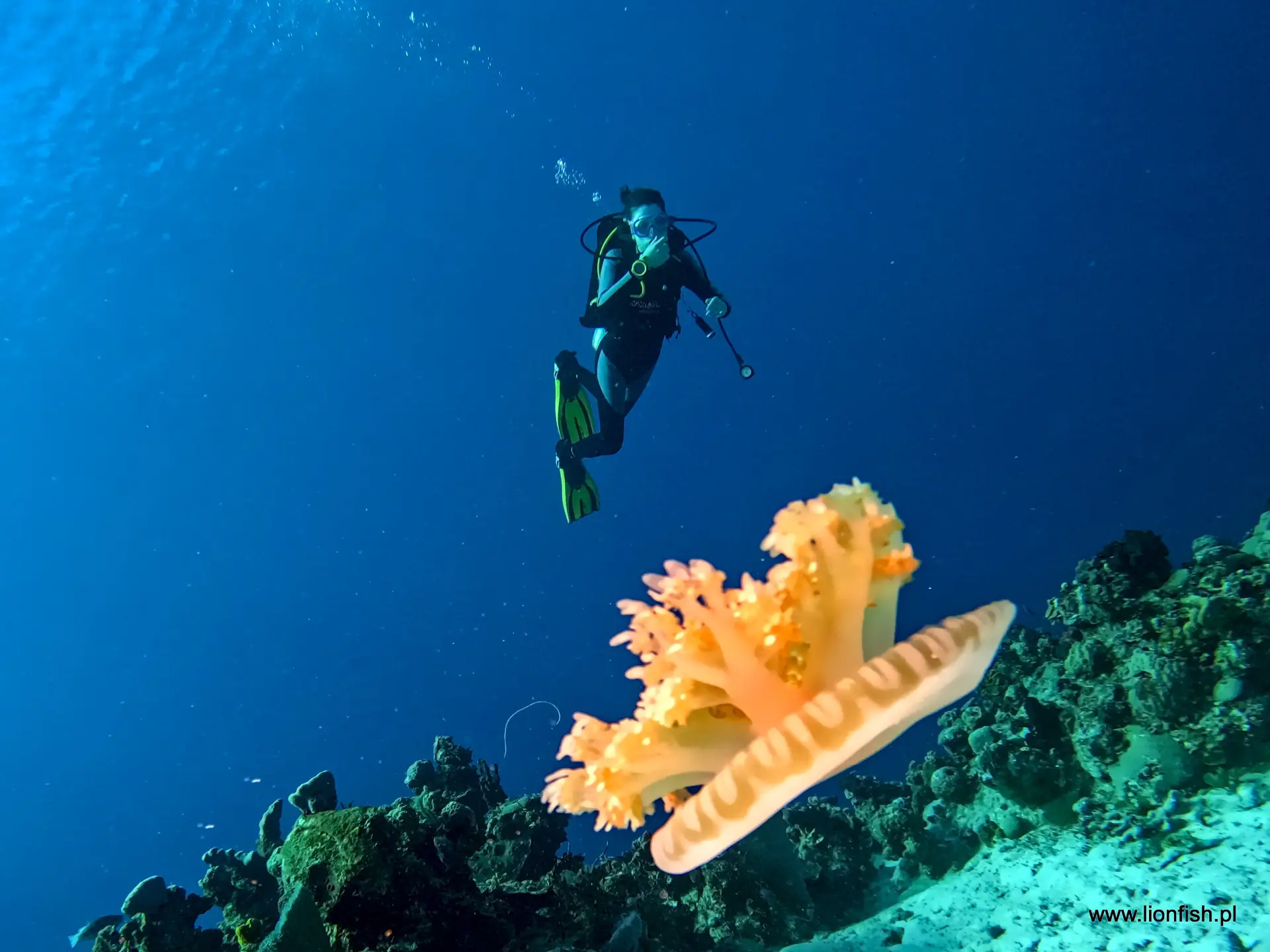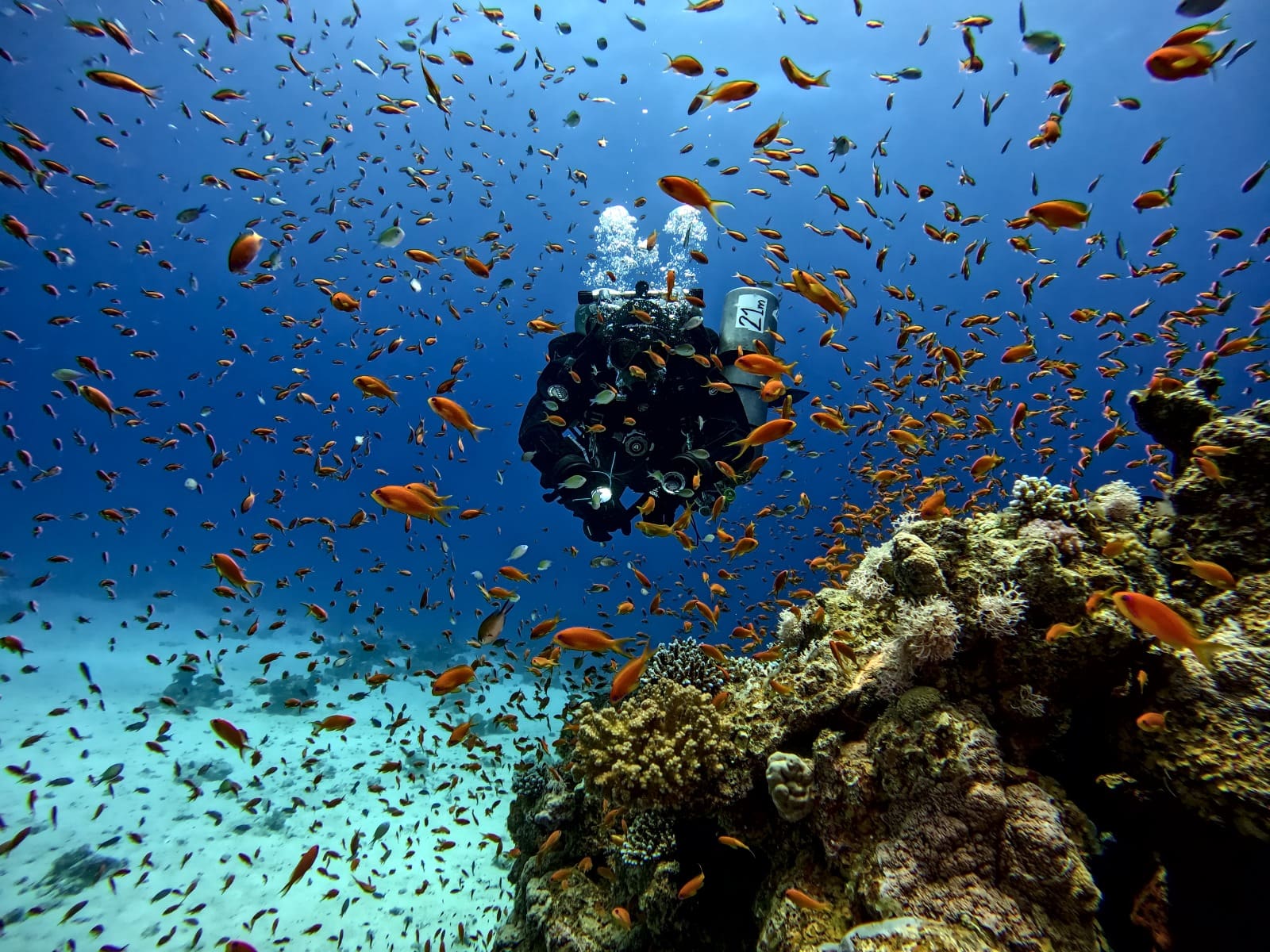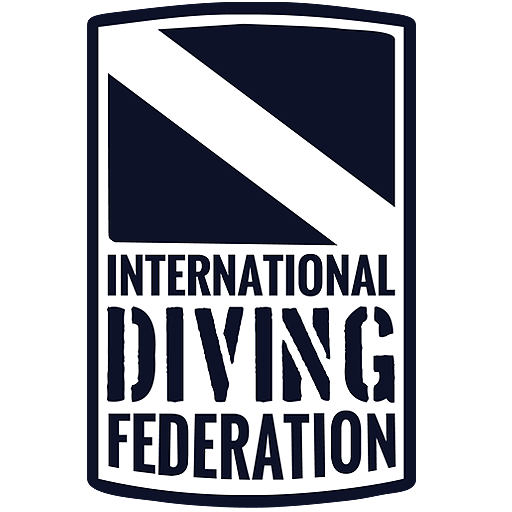HOW TO START DIVING?
Do you dream of exploring underwater mysteries, learning the secrets of this close yet inaccessible world? The diving course for beginners is ideal for those who want to take their first step on the path leading to the other side of the mirror. It is dedicated to those who are just beginning their journey underwater, offering a solid foundation and the skills necessary to safely practice this beautiful sport.
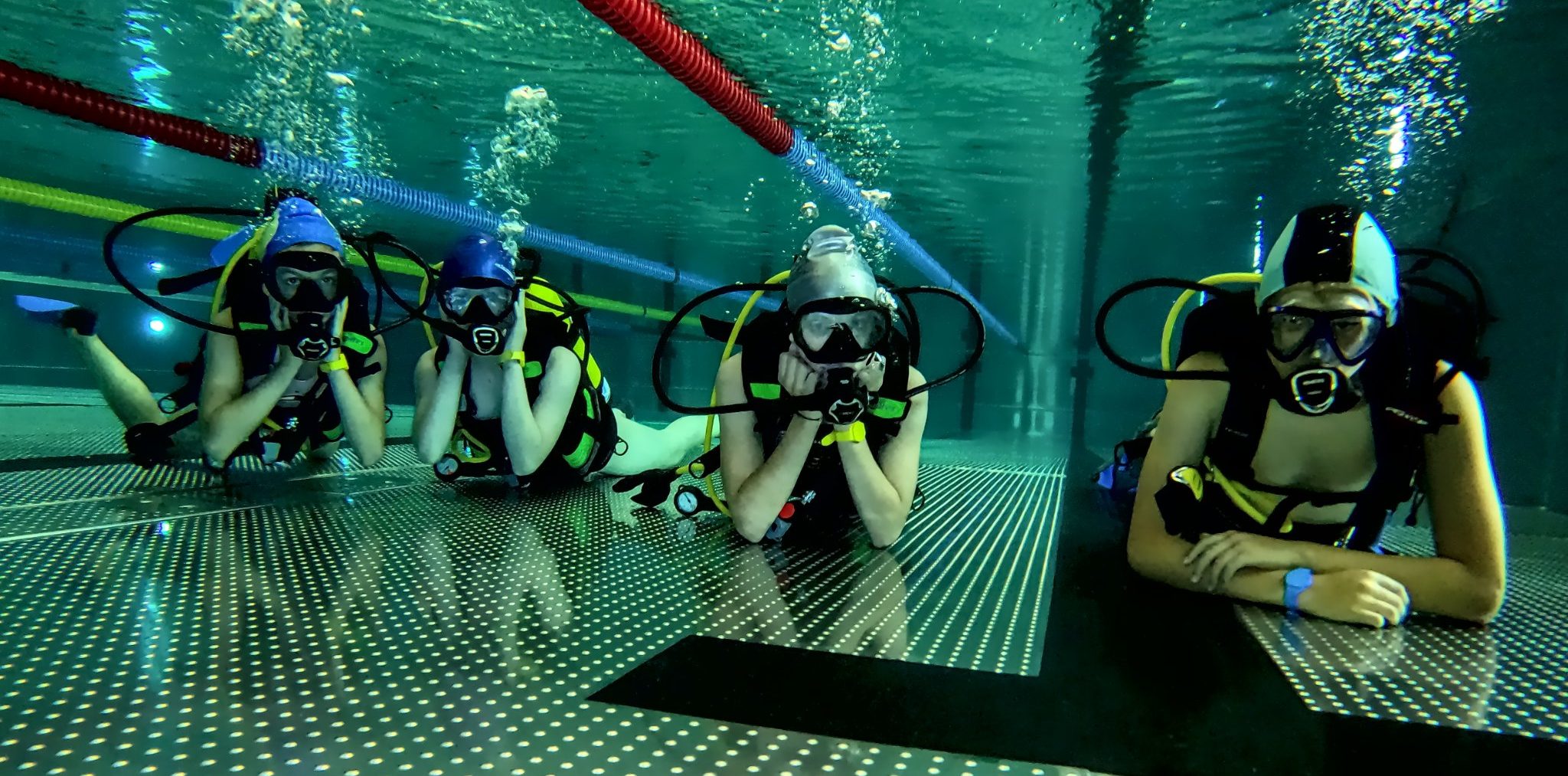
BUT WHERE TO START?
When looking for the best solution for you, you will probably encounter a whole lot of information available on the Internet. The amount of good advice can make even an advanced diver dizzy, let alone a person for whom all this news will be a complete novelty. Everyone will recommend his instructor, the school where he learned, the organization where he became certified. And there are a lot of organizations on the market, a huge number of dive centers and a crowd of instructors just waiting for you!
SO WHAT SHOULD MY FIRST STEP BE? WHAT TO CHOOSE?
Your best bet is to look for a school or instructor in your area. This won’t be difficult, because in Poland the training offer is very wide. This solution will be the most convenient for you. A diving course requires you to spend time mastering many practical skills in the water. Usually such sessions are held at a swimming pool or in a nearby lake or other open water like flooded quarry, that guarantees good diving conditions. Commuting somewhere far away can be an inconvenience, waste valuable time and significantly increase the cost of the course. The majority of Polish instructors are good trainers, so there is little chance that you will encounter someone who trains poorly, quickly and in a rushed manner. Of course, it’s also worth taking a moment to read the opinions of other trainees about the school you’ve chosen well, but how do I recognize a course?
WELL, BUT HOW DO I RECOGNIZE A GOOD INSTRUCTOR
BEFORE I SIGN UP FOR A COURSE?
A wise move would be to have a preliminary conversation with the candidate for your instructor. Call him, make an appointment or attend a free organizational meeting often held by diving schools.
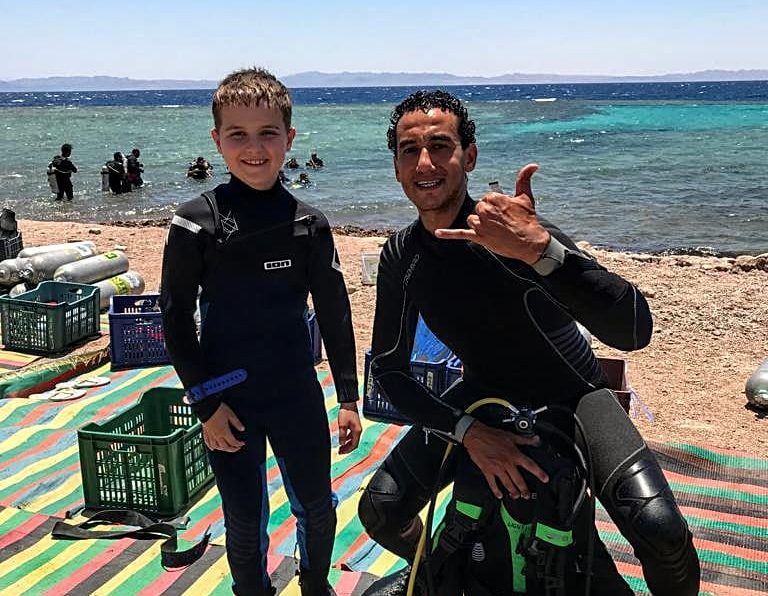
GOOD COURSE…
…WILL BE CONDUCTED IN SMALL GROUPS.
If there are more than four students per instructor during a water class – give yourself a break. Imagine a driving course, where six students sit in a car with one instructor… Well, that’s right! With a large number of people under his care, the trainer will not have time for individual attention to each member of the group, which may reflect on the quality of such a course.
…IS NOT AN EXAM!
The instructor is here to teach you. Don’t be afraid to ask questions, don’t be afraid to not understand, and don’t be afraid to make mistakes. Mistakes made and corrected during the course will increase your skills. The more hours you go through with your instructor and course partners, the more knowledge you will begin your independent underwater adventure.
…IT IS ALSO A PRACTICAL CLASS WITH DIVING EQUIPMENT.
A good instructor during the course will draw your attention to the essential elements, teach you the basics of proper use, care of the equipment, simple repairs like replacing the o-ring (gasket) or mouthpiece. The school equipment you will use while learning should be clean, well-maintained and in good working order. Automatics and buoyancy systems should be serviced regularly, there should be a date of legalization on the cylinder (such legalization takes place every 2 years), the air you breathe while diving should have no taste or smell. Ask about this during the meeting.
…THAT’S MANY HOURS SPENT IN CLASSES ABOVE AND BELOW THE WATER!
If someone offers you a quick weekend course, a course that takes place entirely in the pool, instead of theory classes he only proposes to read a textbook or watch a video at home and similar wonders, stay away from him! It is a waste of your time and money, because diving cannot be mastered quickly.
The instructor should first introduce you to theoretical issues. Later, during the practical classes he should thoroughly acquaint you with all the elements of the diving equipment, explain their operation and teach you how to twist it before diving and untwist it after getting out of the water.
Classes in the pool should include learning how to move correctly, control your breathing and buoyancy, as well as many exercises to prepare you to independently solve simple problems that may arise during the dive. During these classes you will repeatedly twist and turn your equipment until it becomes simple and intuitive for you. The instructor should also emphasize checking your equipment before entering the water and the partner system.
AND ONE MORE NOTE – A GOOD INSTRUCTOR WILL NOT BOLT THE EQUIPMENT FOR YOU.
If you come to a pool class and there’s equipment waiting for you to be bolted up, ready to enter the water, hmmm… It may look nice, but this way a very important part of the training will be skipped.
ON A GOOD COURSE, THE GREATEST EMPHASIS WILL BE PLACED ON SAFETY!
During training, it is very important to maintain maximum safety for all students as well as the course staff. During the classes in the water, great emphasis should be placed on exercises related to authorization and rescue. In turn, during the theoretical classes, the topics of pre-medical first aid given to the diver should be covered.
Remember: SAFETY FIRST!
THE NEXT STEP WILL BE A TRIP TO OPEN WATER.
During a well-conducted course, open water dives should be conducted until you gain a lightness and freedom in moving underwater and performing exercises and your skills will allow you to go underwater on your own with a partner with the same qualifications.
Remember, it’s up to the instructor to decide if you’re ready, but you should also feel armed with the right knowledge and feel that you can handle it.
If you think it’s not yet time to step into the depths on your own, you can go for a post-course dive under the supervision of a diving professional. All good dive centers around the world offer this option. Your school is also likely to offer you the option of going on an organized diving trip. It is worth taking advantage of such option at the beginning of your diving path 🙂
A GOOD COURSE IS NOT THE CHEAPEST COURSE ON THE MARKET.
Think carefully about what you can save on to bring the price down.
- On the equipment that will be responsible for sustaining your life underwater?
- On the number of hours spent learning authoring and coping skills?
- On servicing the compressor to fill the cylinder from which you will breathe?
And then think of the impact it will have on your health and life while practicing this demanding sport.
The diving course for beginners is a comprehensive program that gradually introduces you to the world of diving, starting with theory, through practice in safe conditions, and ending with open water dives. The course modules complement each other, building your knowledge and skills that will come in handy when you dive. Upon completion of the course, you will be ready to dive undecompression dives in open water up to a depth of 20 meters, with a partner with the same or higher credentials.
This post is an abridgement of the full report found at www.lionfish.pl, we encourage you to read it in full.
About the author:
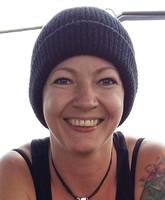
Anna Paszta – Pharmaceutical Process Technologist by education, salesman by profession, diver and traveler by passion. She has been diving since 2011, and for the past 10 years as a professional she has been infecting the next generation of lovers of the deep sea with her passion.
Initially, she worked in dive centers as a divemaster and instructor, and in 2015, together with her husband, she founded her own diving school “Lionfish“in Pruszkow near Warsaw. Since then, she has completed hundreds of successful dive training courses and has taken many interesting trips to the farthest corners of the world with her students. She is most successful in initial training, and her hubby is working with diving youth.
Photos: Anna Paszta, Klaudia Gulina, Przemysław Paszta



